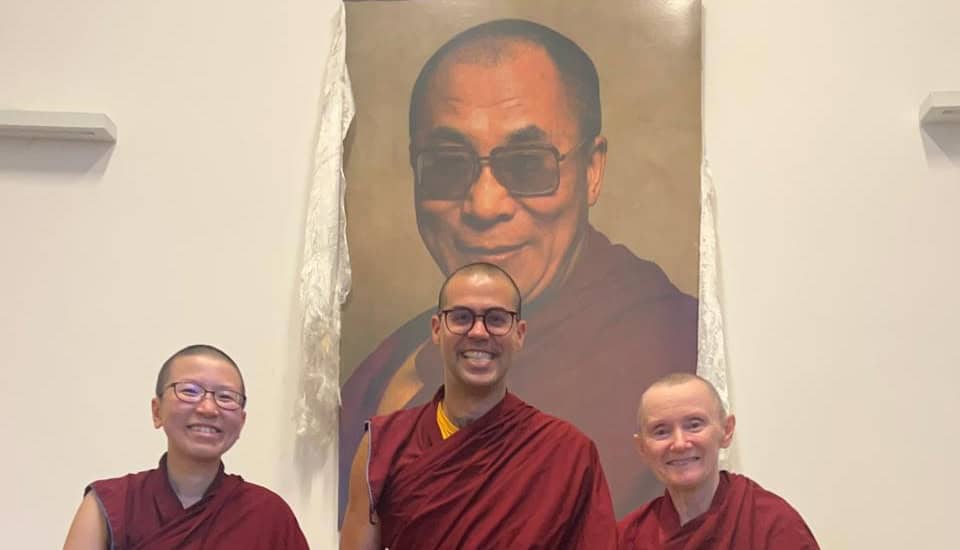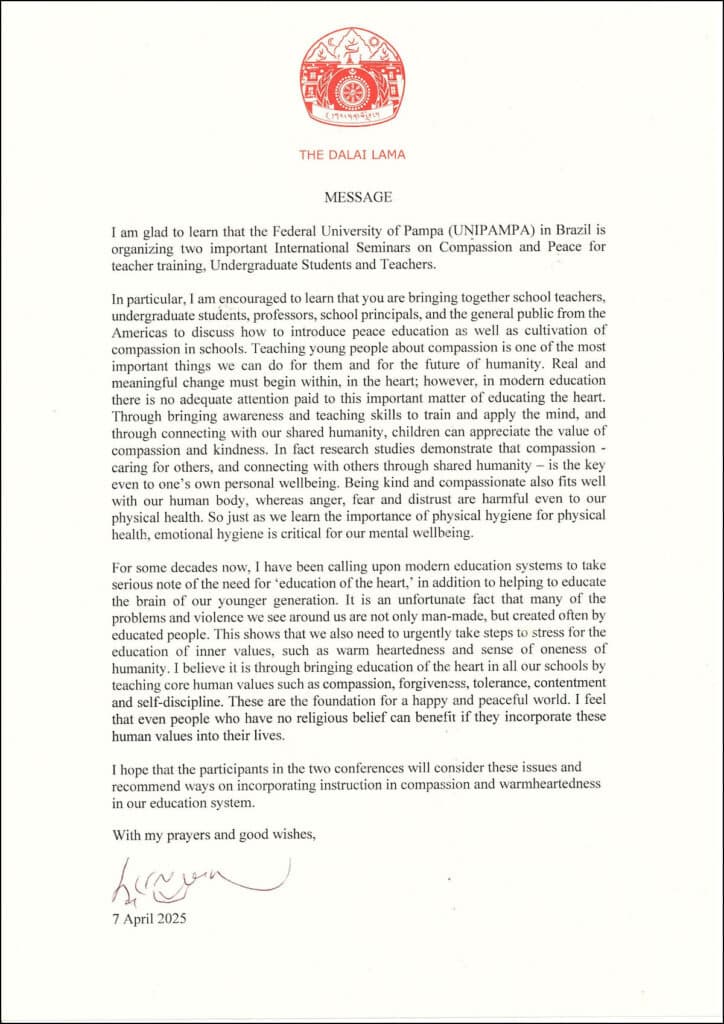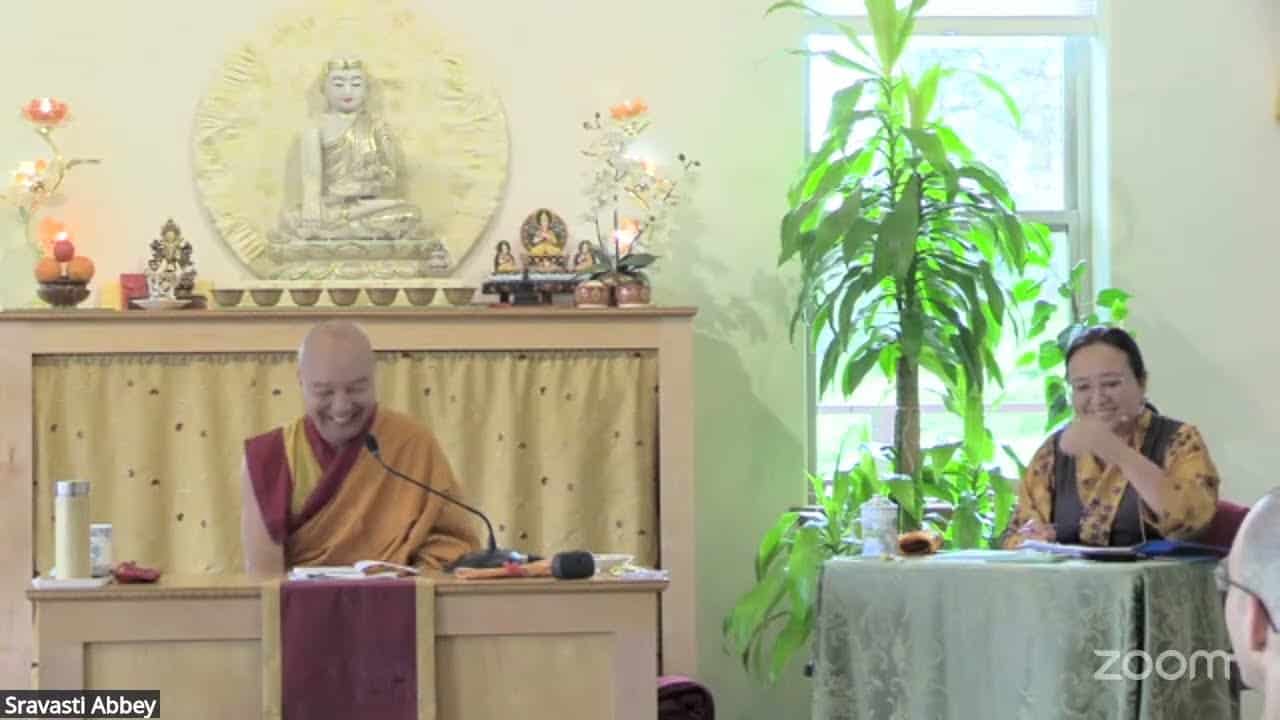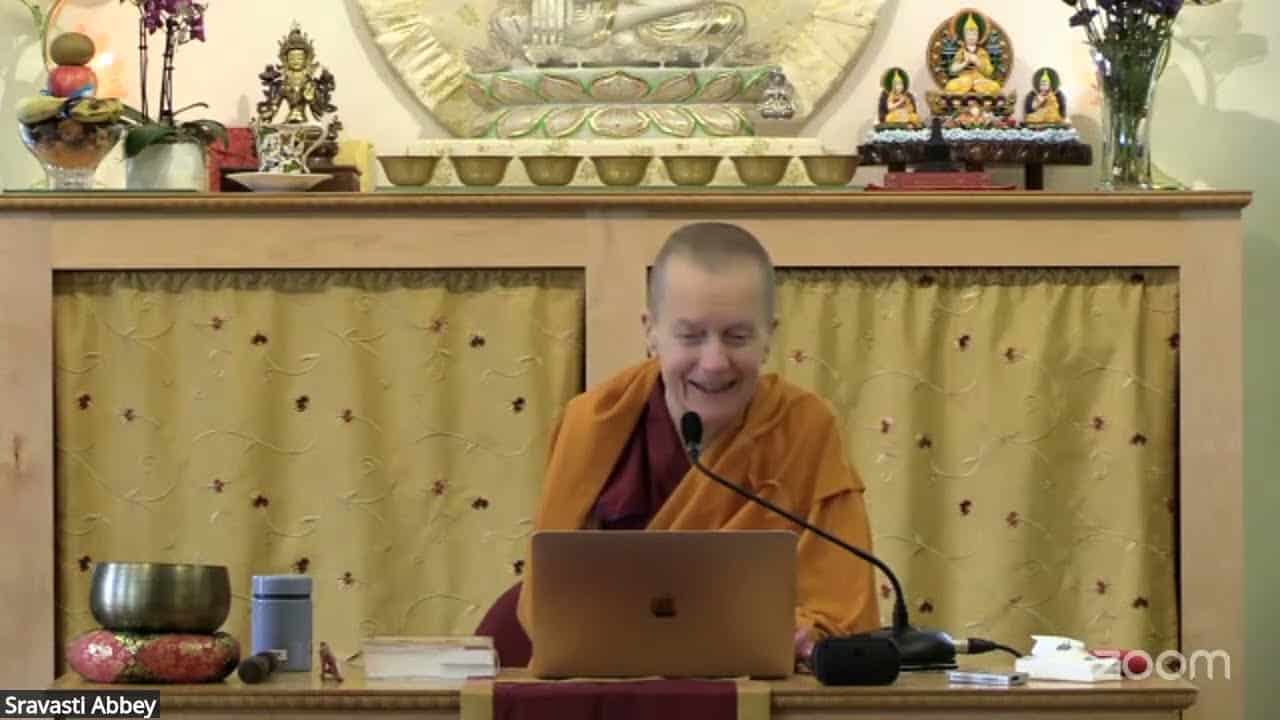Education in compassion and peace

Sravasti Abbey was one of the co-sponsors of two seminars hosted in April 2025 by the Federal University of Pampa in Brasil: The 1st International Seminar on Peace Education – Contributions of Compassion for teacher training and the 1st South American Symposium of Undergraduate Students and Teachers on Compassion and Peace Education. His Holiness wrote this letter in support of the goals of the seminars.
I am glad to learn that the Federal University of Pampa (UNIPAMPA) in Brazil is organizing two important International Seminars on Compassion and Peace for teacher training, Undergraduate Students and Teachers.
In particular, I am encouraged to learn that you are bringing together school teachers, undergraduate students, professors, school principals, and the general public from the Americas to discuss how to introduce peace education as well as cultivation of compassion in schools. Teaching young people about compassion is one of the most important things we can do for them and for the future of humanity. Real and meaningful change must begin within, in the heart; however, in modern education there is no adequate attention paid to this important matter of educating the heart.
Through bringing awareness and teaching skills to train and apply the mind, and through connecting with our shared humanity, children can appreciate the value of compassion and kindness. In fact research studies demonstrate that compassion — caring for others, and connecting with others through shared humanity — is the key even to one’s own personal wellbeing. Being kind and compassionate also fits well with our human body, whereas anger, fear and distrust are harmful even to our physical health. So just as we learn the importance of physical hygiene for physical health, emotional hygiene is critical for our mental wellbeing.
For some decades now, I have been calling upon modern education systems to take serious note of the need for ‘education of the heart,’ in addition to helping to educate the brain of our younger generation. It is an unfortunate fact that many of the problems and violence we see around us are not only man-made, but created often by educated people. This shows that we also need to urgently take steps to stress for the education of inner values, such as warm heartedness and sense of oneness of humanity. I believe it is through bringing education of the heart in all our schools by teaching core human values such as compassion, forgiveness, tolerance, contentment and self-discipline. These are the foundation for a happy and peaceful world. I feel that even people who have no religious belief can benefit if they incorporate these human values into their lives.
I hope that the participants in the two conferences will consider these issues and recommend ways on incorporating instruction in compassion and warmheartedness in our education system.
With my prayers and good wishes,
7 April 2025
His Holiness the Dalai Lama
His Holiness the 14th Dalai Lama, Tenzin Gyatso, is the spiritual leader of Tibet. He was born on July 6, 1935, to a farming family, in a small hamlet located in Taktser, Amdo, northeastern Tibet. At the very young age of two, he was recognized as the reincarnation of the previous 13th Dalai Lama, Thubten Gyatso. The Dalai Lamas are believed to be manifestations of Avalokiteshvara or Chenrezig, the Bodhisattva of Compassion and the patron saint of Tibet. Bodhisattvas are believed to be enlightened beings who have postponed their own nirvana and chosen to take rebirth in order to serve humanity. His Holiness the Dalai Lama is a man of peace. In 1989 he was awarded the Nobel Peace Prize for his non-violent struggle for the liberation of Tibet. He has consistently advocated policies of non-violence, even in the face of extreme aggression. He also became the first Nobel Laureate to be recognized for his concern for global environmental problems. His Holiness has traveled to more than 67 countries spanning 6 continents. He has received over 150 awards, honorary doctorates, prizes, etc., in recognition of his message of peace, non-violence, inter-religious understanding, universal responsibility and compassion. He has also authored or co-authored more than 110 books. His Holiness has held dialogues with heads of different religions and participated in many events promoting inter-religious harmony and understanding. Since the mid-1980’s, His Holiness has begun a dialogue with modern scientists, mainly in the fields of psychology, neurobiology, quantum physics and cosmology. This has led to a historic collaboration between Buddhist monks and world-renowned scientists in trying to help individuals achieve peace of mind. (Source: dalailama.com. Photo by Jamyang Dorjee)



